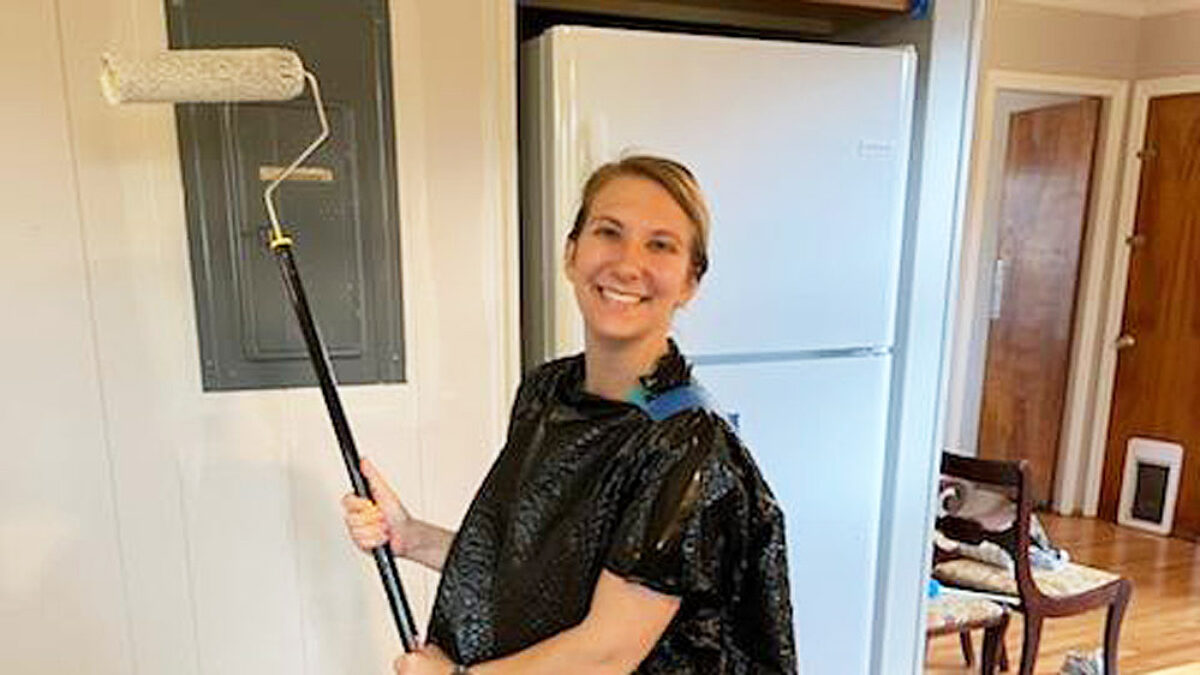
Mercy House establishes end-of-life space for homeless
By Jessica Brodie
Our transition from earth to our heavenly home is an intimate, personal and vulnerable time. Many of us prefer to be in a peaceful setting, surrounded by family and our closest friends, as we pass from this world to the next.
But for those at the end of their life who are homeless or do not have a safe or dependable support system, this can be a time of uncertainty, struggle and discomfort.
With this in mind, one group of United Methodists in the Rock Hill District have stepped up to offer a place where people can receive both hospice care and the love of Christ.
Called Mercy House, the new ministry is located in the parsonage of Bethel United Methodist Church, Rock Hill.
Organizers are putting finishing touches on the space so it can open its doors in mid-June.
“It’s a place where we celebrate a person’s life and also walk alongside them through that narrow space between heaven and earth. It’s a privilege to be part of that, and so often for homeless people, the concerns are: will I die alone, will anybody find me and will anybody care?” said Connie Cochrane, Bethel member who is part of the Mercy House board. “Our hope is that we can relieve that fear.”
Cochrane, Donna Williams, Mary Newlin, Elena Eckert and Becky Moon form the nascent board of Mercy House, which began out of the church’s longtime overnight shelter for homeless men, and now its additional day shelter for homeless men and women.
Williams, a member of nearby Friendship UMC, Rock Hill, said she has volunteered with Bethel Shelters for seven years and Cochrane for 10, and over the years, several of the homeless men they have grown close with have passed away. They created a memory board recently to honor some of these men, and Williams said this got them thinking: Is anybody going to be with these others when they die?
“One gentleman we know of passed away by himself,” Williams said. “We know we wouldn’t want our family members to pass away without someone there, and these men and women have become our family.”
Several of the shelter volunteers began praying about a ministry and talking with area hospice agencies, and they discovered that when someone is at the end of their life or facing a serious health situation and needs hospice or recuperative care, if they do not have a permanent address, they cannot access certain benefits to ease their transition.
Soon they learned Bethel’s pastor, the Rev. Emily Sutton, was moving out of the parsonage into a home she and her family purchased, so Mercy House formed and approached the church, seeking to use the space. The ministry is using the space free of charge, except for utilities and insurance, and is available to the organization on a year-to-year basis because of the itinerate system of the UMC.
“Now, not only do we shelter homeless people and serve as the Epworth Children’s Home foster care site for the district, but we also have a partnership with Mercy House,” Sutton said.
And it’s all on the Bethel main campus—a small but active church that does big things in the name of the Lord.
A 501(c)(3) nonprofit, Mercy House will be an independent living home able to accommodate four men and women from the three surrounding counties (York, Lancaster and Chester), who will live onsite and receive their end-of-life care. Guests will be referred by a licensed hospice agency and have a diagnosis of less than six months to live. Volunteers will spend time with them, maintain the house, provide meals, do laundry and supervise trained staff, such as certified nursing assistants who will care directly for the guests.
“More and more now as our population is aging, people live alone and family is not close enough by to provide care,” Cochrane said.
Cochrane said one man they cared for before Mercy House formed was legally blind, he had two strokes and no family nearby, and he ended up alone in the hospital when they finally learned about his situation. Others have fallen and died outside near the railroad tracks.
“They pass away alone,” Cochrane said, something that feels wrong if Bethel can do something about it.
Williams said Mercy House organizers view their ministry as an extension of the existing shelters at Bethel.
“We see this as a continuum of care for those experiencing homelessness,” Williams said. “I heard it said best the other day: ‘We will be there to help walk someone home. It’s not a goodbye, but a ‘walking you home.’”
Cochrane said the faith community in their area is strong, and she’s confident they will see a phenomenal response from area volunteers.
“There are so many things falling in place, ‘God sightings,’ we call them, that convince us this is what we’re being asked to do,” she said.
Williams agreed, noting they are hoping sharing their story can inspire other congregations to consider new ways they can help their communities. She said Mercy House is based on the parable of the Good Samaritan from Luke 10:34-36 about how the man who showed mercy was the one who served as a true neighbor.
Mercy is what it’s all about, Williams said.
“If there’s any space you can use at your church, you need to start thinking outside of the box about what you can do to offer help.”
Sutton said she’s proud and heartened by this response to a felt need in the community.
“This situation isn’t just happening here,” Sutton said. “This is happening in communities across the state. There’s a huge underserved population in this state, and as housing prices continue to rise, it causes rental prices to continues to rise, and this causes a major problem for people.”
To learn more about Mercy House, connect with them on Facebook at www.facebook.com/mercyhouserh or email [email protected].